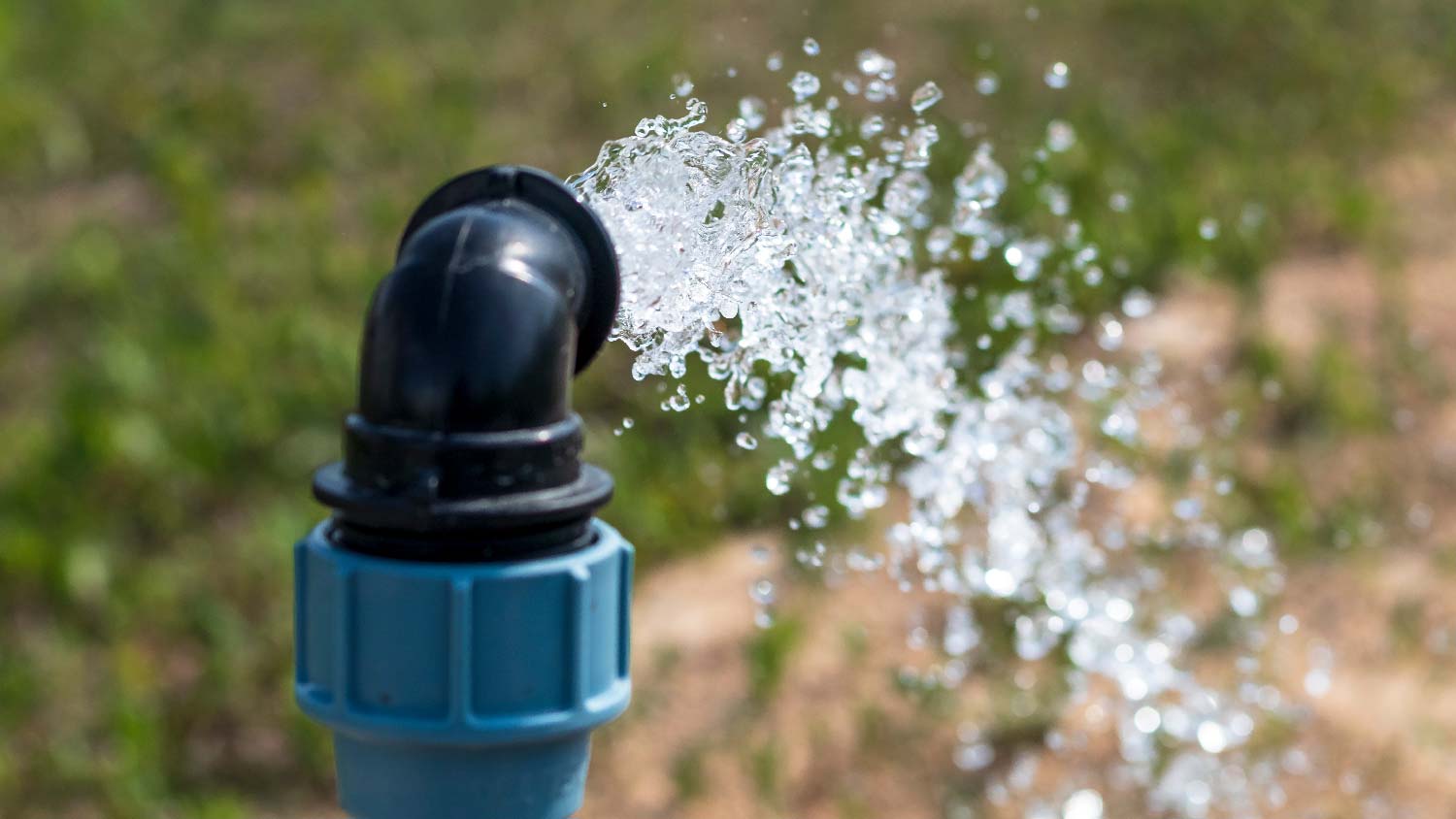
The cost of a well casing replacement depends on materials, well depth, and labor. This guide will help you find the right casing for your well and budget.
Don’t let air in your pipes get you down


Air in water pipes is commonly caused by a waterlogged pressure tank.
Reduced water pressure is also a common indicator of air in water lines.
Early detection of air in water pipes can prevent pump breakdowns.
Act quickly if your well pump and water pipes need repairs.
It’s early in the morning and you’re getting ready to start your day. After putting toothpaste on your toothbrush, you turn on the tap only to be greeted by sputtering water and an annoying rush of air through the pipes. Air in your pipes isn’t uncommon, but once you know the reasons behind it you can address the issue and prevent it from happening again—especially with some advice from the pros who've seen it all. Get ready to say goodbye to those air bubbles in your pipes.
Over time, water well pressure tanks can become waterlogged, causing air to accumulate. Drain the tank to release the excess water, or replace the tank if it's old or damaged.
A faulty check valve allows air to enter the system when the pump is off. Replace the check valve to prevent any backflow of air and water.
Cracks or leaks in the well's drop pipe or casing can introduce air. Seal the leaks or replace the damaged sections of the pipe or casing.
Changes in the water table level can cause air to enter the system. Regularly monitor the water table, and adjust the well pump's depth accordingly.
A drop in the static water level can allow air to enter the pipes. For this one, it’s best to consult a professional to assess and deepen the well to reach the static water level.
Inadequate installation or irregular maintenance can lead to air issues. If you need to replace your current well, it’s smart to hire a professional to install it or replace pipes so you know they’re done correctly. Then schedule yearly well inspections and maintenance to prevent any more air from entering the system.

Monitoring your water quality helps you find air problems and other issues in your water pipes because air can affect your water’s taste and odor. Recognizing common signs of air in your pipes can also help you take action to resolve the problem before it becomes a much more costly repair (or replacement) job.
Here are the most common signs of air in water pipes with a well:
Sputtering faucets
Banging noises in pipes
Bursts of air from faucets
Inconsistent water pressure
Gurgling or hissing noises in pipes
Well pump failure is a more severe issue than simply having air in the pipes, and the results can be alarming. The signs of a total failure are a bit more severe and include:
A complete loss of water supply which leads to dry taps
Electrical problems, such as frequent tripped breakers, which lead to a sudden spike in your energy bills
Corrosion or physical damage to the pump components
A well that continuously runs without delivering water
A pump that won't start at all
If you find one of these signs that you need a new well pump, contact a local professional so you can fix it and preserve the rest of your well.
While identifying the causes of air in your well pipes is valuable, the complexities of well systems often require professional expertise in order to fix them. Attempting DIY repairs can lead to costly mistakes, worsen the problem, or even compromise the safety of your well.
If you find issues related to air in your well pipes or any other significant well system problems, reach out to a professional well technician near you for a detailed inspection. They'll identify the root cause, whether it's a damaged pump, air in the pipes, or electrical problems. Based on their assessment, they'll recommend and execute the necessary repairs or replacements.
From average costs to expert advice, get all the answers you need to get your job done.

The cost of a well casing replacement depends on materials, well depth, and labor. This guide will help you find the right casing for your well and budget.

Cisterns can save you money and help the environment. So what’s the cost of a cistern and how does it compare to other rainwater collection systems?

Dry wells are handy for anyone who’s experiencing drainage problems. But dry well installation costs can vary depending on its size, location, and volume.

What is a dry well? It’s not (always) a well that’s run dry. Dry wells help drain away excess stormwater to avoid excess drainage and flooding.

Tap into freshwater with a DIY well. Learn how to dig a well by hand with these steps, and enjoy cost savings and a natural water source.

Keep water flowing to your taps by learning how to prime a deep well pump whether it’s a new install or a quick repair. Check out these steps to get started.